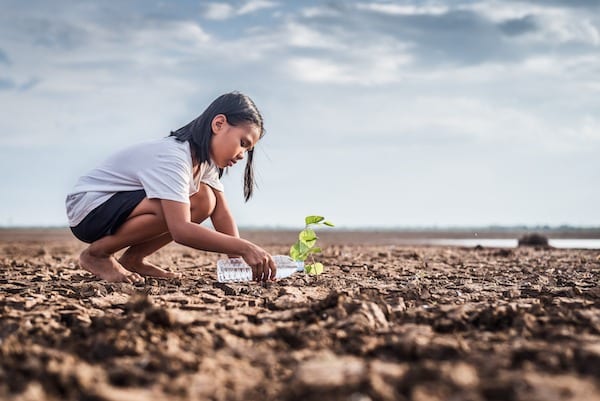Sadly, it details how the struggle for control of and access to natural resources may be further exacerbating violence against women and girls — potentially eliminating gains made on international efforts to achieve gender equality, and highlighting an urgent need to take action on climate change.
The report also finds that attempts to adapt to climate breakdowns and respond to disasters are failing in developing countries, due to inadequacies in addressing gender inequalities.
The report, from the International Union for Conservation of Nature (IUCN), is believed to be the biggest and most comprehensive study ever undertaken on the issue, and shows the link between environmental degradation and gender-based violence, including the prevalence of domestic violence, rape and forced marriages.
It highlights thousands of information sources and case studies in its research, including one from Ntoya Sande, who was 13 when she was forcibly married, due to a shortage of food at home following floods that wiped out the family harvest.
“I tried to negotiate, to tell my parents that I wasn’t ready, that I didn’t want to get married, but they told me that I had to because that would mean one mouth less at the table,” she’s quoted as saying in the report.
Indeed, child marriage may increasingly be seen as a “survival strategy” for families affected by environmental disasters, including those that come as a result of climate change. In Ethiopia and South Sudan, which has been experiencing extreme drought, the study notes that girls are being sold in exchange for cattle.
The report also shares how gender based violence can be deployed as a means to maintain power imbalances, especially when access to natural resources is diminished, with the report authors stating that: “Competition over scarce resources in and between communities, households and industries amplifies normative, discriminatory and exploitative gender inequalities, giving way to a rise in GBV (gender based violence).” .
Another example of where conflict over scarce resources can lead to violence includes that of ‘sex for fish’, where fishermen refuse to sell women fish if they don’t engage in sex, which has been occurring in Eastern and Souther Africa.
“As limited natural resources grow even scarcer due to climate change, women and girls must also walk further to collect food, water or firewood, which heightens their risk of being subjected to gender-based violence.”
The report also looks at women as environmental rights defenders, and again concludes that gender based violence can be used to “assert power imbalances and, at times, violently discourage or stop women from speaking out for their rights, working toward on benefiting from a safe and healthy environment.”
Already, the World Bank estimates that one in three women and girls will experience gender-based violence during her lifetime. But an increasing frequency in environmental events due to climate change — such as droughts, bushfires, cyclones and floods — can make women and girls more vulnerable.
But these issues are largely ignored or overlooked when it comes to advancing gender equality, including addressing gender based violence under the Sustainable Development Goals. Likewise, when it comes to environmental agreements and targets, the gender based violence link is also largely forgotten.
“While ending Gender Based Violence (BBV) and securing environmental sustainability are each global priorities, rarely are they addressed together,” the report authors write.
This report makes for difficult reading, but should be an additional catalyst for taking action on climate change — and result in key talking points in the lead up to International Women’s Day. Read it here.


